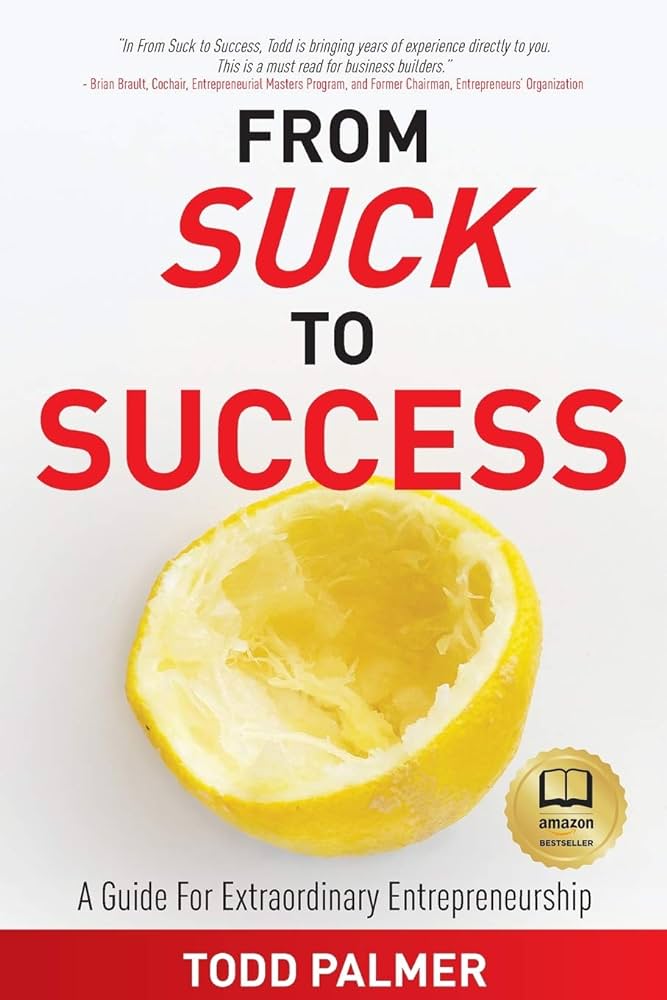Leaders Avoid Asking for What They Want
(and it’s quietly costing them everything)
I see this pattern repeatedly — in my clients, in forum retreats, and in my own reflection:
Leaders who can take bold risks in business… freeze when it’s time to ask for what they actually want.
They’ll take on a $10M expansion, restructure an entire team, or launch a new product line without hesitation.
But ask an underperformer to step up?
Ask a co-founder for support?
Ask a spouse what they need emotionally?
That’s where courage suddenly disappears.
Let’s talk about why.
The Real Fear Behind the Ask
Most leaders avoid asking for what they want because of two quiet fears:
Fear of “No.”
A “no” feels personal.
It shatters the illusion of control and forces us to confront the truth — that not everyone will meet our expectations or validate our vision.
Neuroscientist Dr. Daniel Friedland called this the brain’s threat circuitry. When we fear rejection, our amygdala hijacks our ability to think clearly.
We tell ourselves it’s “not the right time,” but what’s really happening is that our nervous system is trying to protect us.
Fear of “Yes.”
A “yes” sounds great — until it demands something from us.
It means we must grow, to follow through, to change.
As psychologist Dr. Gay Hendricks explains in The Big Leap, many high achievers hit an upper limit — a subconscious fear of success. The moment life begins to expand, they self-sabotage.
And stuck between those two fears, leaders build what Patrick Lencioni calls artificial harmony — a fragile peace where everyone smiles, but nothing real gets said.
It feels safe.
But it’s a slow death for trust, innovation, and growth.
The Business Cost of Avoiding the Ask
Avoidance looks harmless — until you realize what it’s costing you.
You settle for B-players.
You convince yourself they’re “loyal” or “trying hard.”
But what you’re really saying is, I don’t believe I can attract or lead A-players.
As Jim Collins reminds us in Good to Great:
“You must get the right people on the bus — and the wrong people off — if you want to go anywhere worth going.”
When you avoid accountability conversations, you lower the bar for everyone. Gallup’s research shows that only 23% of employees are truly engaged at work — and unclear expectations are one of the top reasons why.
You stagnate.
You ride one “wave” of success — maybe referrals, a key client, or a lucky streak — but you never prepare for the next one.
Waves always crash.
Great leaders anticipate the next swell.
Fearful ones try to surf the old one longer than they should.
The Hidden Cost at Home
Entrepreneurs often bring their CEO energy home — directing, fixing, solving.
That’s great in business.
Disastrous in relationships.
You can’t lead your marriage like a company.
You can’t performance-manage connection.
Dr. John Gottman’s research shows that most relationship breakdowns come not from big betrayals, but from what he calls “harsh startups” — conversations that begin with criticism or control instead of curiosity.
When we bring our “executive voice” into a personal relationship, it shuts the other person down.
And suddenly, the person we love most feels like they work for us, not with us.
As Harriet Lerner wrote in The Dance of Connection:
“We can speak the truth only when we’re willing to hear the truth in return.”
That’s the difference between leadership and partnership.
The Real Work: Asking Anyway
Here’s the truth I’ve had to learn (and relearn):
Courage isn’t commanding people.
It’s asking clearly and vulnerably for what you need — and creating space for others to do the same.
Ask your team: “What do you need from me to succeed?”
Ask your spouse: “What helps you feel supported by me?”
Ask yourself: “What do I actually want — and what am I afraid might happen if I ask for it?”
Then pause.
Listen.
And be willing to hear the answer — even if it’s uncomfortable.
Because, as Brené Brown says, “Clear is kind. Unclear is unkind.”
Avoidance might keep the peace today, but it costs you trust tomorrow.
A Challenge for This Week
Before your next 1:1 or team meeting, take a 5% Reflection — one small moment of awareness that creates massive change:
- What conversation am I avoiding because I’m afraid of the answer?
- Where am I settling for artificial harmony instead of real alignment?
- What would it look like to ask — clearly, calmly, and without apology — for what I truly need?
You don’t need a script.
You need honesty.
Leadership isn’t about having all the answers.
It’s about creating the safety where truth can exist — and the humility to receive it when it arrives.
Final Thought
Years ago, I had a team member who underperformed for months. I convinced myself I was being kind by avoiding the conversation. The truth? I was afraid — afraid of their reaction, afraid of breaking the illusion of harmony, and afraid of how my team would react if I had to terminate this employee.
When I finally asked for what I needed — clarity, accountability, ownership — everything shifted.
Not because I got what I wanted, but because I finally got real.
So here’s my challenge to you:
Where in your business — or your life — are you settling for artificial harmony?
And what’s the one honest ask that would set you free this week?
Because great leaders don’t avoid the truth.
They ask for it — directly, courageously, and with an open heart.
With Gratitude,




